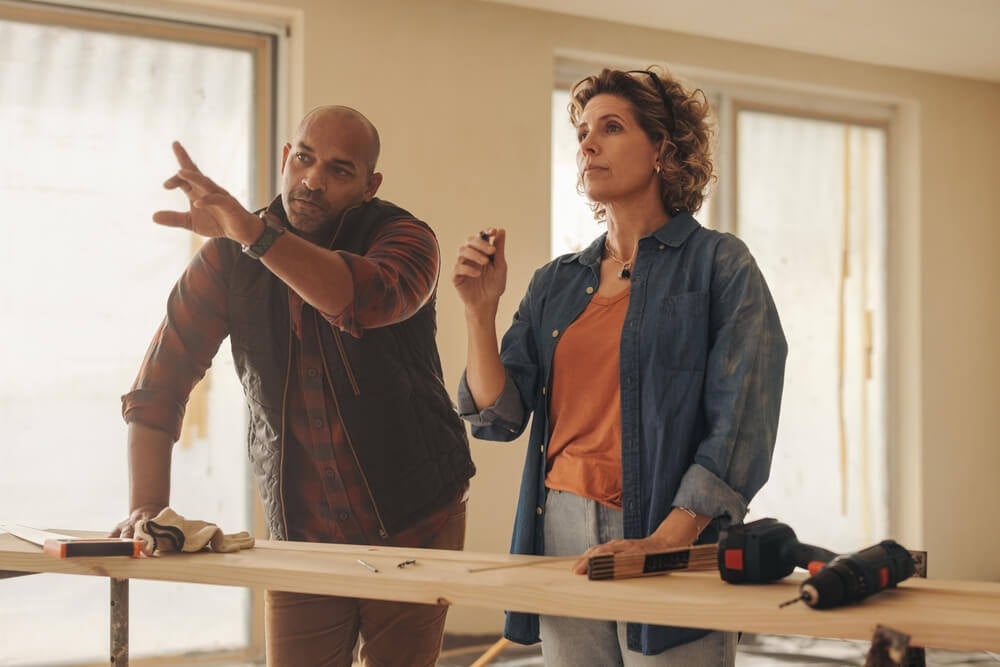Homeownership is more complex than just buying a house. There are obvious demographics and income levels to consider, but also the psychological factors that make a homeowner buy a specific service from one provider and not another.
By understanding and appealing to these underlying priorities, you can create more compelling offerings and build stronger client relationships.
In this post, we’ll discuss homeowners' psychology, giving insight into the thoughts and feelings that drive their purchasing decisions.
The Emotional Investment in Home
For most people, a home represents far more than a financial asset. It embodies security, identity, and aspiration in ways few other possessions match. This emotional dimension creates both opportunities and challenges for service providers.
Remember, you’re not just updating a kitchen or fixing a roof—you're contributing to their sense of safety and belonging. If your company recognizes this emotional component, it will consistently outperform the other companies who focus solely on technical specifications.
To align with this priority:
- Use language that acknowledges both practical and emotional benefits in your marketing to educate customers so they are more actively involved
- Train staff to recognize and respect the personal connection clients feel to their homes
- Document and share the transformative impact of your services through compelling before-and-after storytelling
Control and Agency
No research study is needed to know that homeowners value a sense of control over their living environment. This desire influences how they interact with service providers and make decisions about home improvements.
It should come as no surprise that homeowners who feel empowered during the service process report significantly higher satisfaction levels, even when facing unexpected challenges or delays. Conversely, feeling that decisions are made without their input is a primary source of client dissatisfaction.
To address this priority:
- Create clear, transparent processes to give homeowners meaningful choices
- Provide regular updates and decision points throughout projects
- Develop digital tools to allow clients to track progress and provide input at their convenience
- Offer tiered service packages to let clients determine their level of involvement
Identity Expression
For many homeowners, their property serves as an extension of their personal identity and values. From environmental consciousness to cultural heritage to aesthetic preferences, people increasingly see their homes as statements about who they are.
To connect with this priority:
- Develop intake processes to explore clients' values and self-perception, not just their functional needs
- Create portfolios to showcase diverse styles and approaches rather than a single aesthetic
- Train your team to listen for identity markers in client conversations and respond accordingly
- Highlight customization options in your service offerings
Risk Mitigation and Peace of Mind
Homeownership involves significant financial and emotional risk. From major unexpected repairs to concerns about making the wrong decisions on improvements, anxiety forms the backdrop for many homeowner decisions.
Service providers who address this anxiety directly by offering certainty, guarantees, and clear expectations can command premium pricing while building deeper client loyalty.
To satisfy this priority:
- Offer warranties and guarantees that transfer risk from the homeowner to your business
- Provide detailed, jargon-free explanations of processes and potential complications
- Create fixed-price packages when possible or transparently explain variables
- Develop systems for preventing and addressing common homeowner concerns before they arise
Value Alignment
People increasingly want to work with people and companies whose values mirror their own. These might include environmental responsibility, community involvement, ethical labor practices, or support for social causes. As a result, people ask more questions about business practices and values than they did five years ago.
To demonstrate value alignment:
- Clearly communicate your company's mission and values across all touchpoints
- Develop and highlight sustainable, ethical practices within your business operations
- Consider certification programs that verify your commitments
- Share stories about your community involvement and positive impact
Practical Implementation
Understanding these psychological factors is only valuable if you can translate them into actionable business practices. Consider these implementation steps:
- Audit your current marketing materials and client communications to assess how well they address these priority areas
- Develop a simple questionnaire to help identify which priorities matter most to individual clients
- Train your team to recognize and respond to psychological cues during client interactions
- Create service packages specifically designed around each priority area
- Gather feedback about how well your services are addressing these deeper needs
Let McClatchy Help You Connect with Homeowners!
When homeowners feel genuinely understood, they become enthusiastic advocates for your business. Successful business owners recognize they're not just selling technical expertise—they're also helping homeowners fulfill deeper psychological needs. By aligning your offerings with priorities like emotional connection, control, identity expression, risk mitigation, and value alignment, you’ll likely find more meaningful relationships with clients you enjoy working with while commanding premium pricing for your services.
McClatchy has the expertise to connect your company with homeowners who need your services. With the McClatchy Premium Audience Network, you can find your customers wherever they are and reach them with resonated messaging.
Reach out to McClatchy today to learn more about how they can help!





